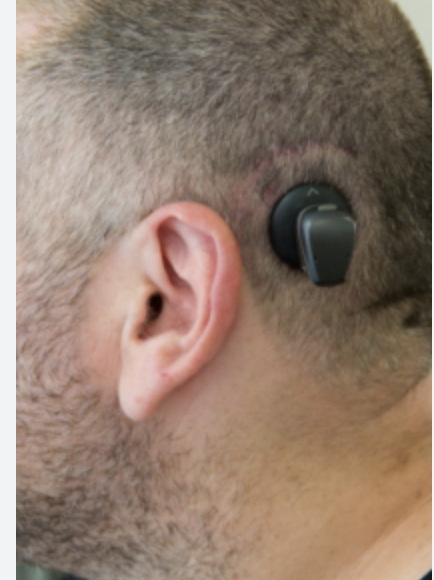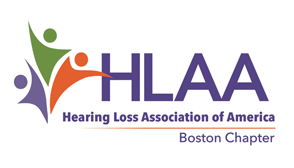Hi! My name is Julie and this summer I am interning for HLAA Boston with my friend Alice. I want to start off this post stating that I don’t have hearing loss and I am not deaf, but at our school we have a great CAPS program so I work with and interact with lots of hard of hearing and deaf people. Also through this internship I have interacted and worked with many wonderful people who have hearing loss. I have seen the struggles and also the successes they have gone through. As someone who does not have hearing loss I have seen somethings that might be normal for people who have hearing loss but might be abnormal for people who don’t. Like I have seen many people try to speak louder to deaf people even though they can’t hear. In school forgetting captions on a video. While these are small things I think it can make people feel out of place and unwanted. Also in my time here I have learned that only 2% of the population of people with hearing loss know ASL, so if you meet someone with a hearing aid you shouldn’t assume they know ASL. Everyone’s experience with hearing loss is different and there is always a large variety of stories from each person. Talking to people who are so different but also connected by this experience you can see how they relate to each other but also how their experiences differ by each generation and each person. I hope in the future people with disabilities will be less stigmatized and will be given the accommodations they need. I see this organization bringing change and helping people with hearing loss as one step toward that!
Month: July 2025
Assumptions About Hearing Aids
Hello! My name is Alice and I am a rising senior who is interning with HLAA for the summer. I was assigned to make a blog post on this website to share my experience with hearing loss. As for some context, I was born with moderately severe conductive hearing loss as a result of not having ear canals. I wear a Bone Anchored Hearing Aid, or a BAHA, which is basically a quarter-sized device that rests on the side of my head, right behind my ear (see attached image). Because my hearing aid is not what people would typically think of as what a hearing aid is “supposed” to look like, I consistently get questions on what it is. The question I get the most is “what’s that?”, usually asked by young children, but I get lots of other questions too, including but not limited to: “what kind of headphone is that?”, “is that thing recording me?” or “are they using that to track your sleep or something?”. And it’s not just people with typical hearing asking these questions. A couple months ago, I was spending time with a preteen who also had hearing loss and she asked what my hearing aid was. When I told her it was my hearing aid, she responded “oh, I know what a hearing aid is but the ones I see never look like that.” That moment really stuck with me because it reminded me that hearing aids, like hearing loss itself, are wide in variety and often misunderstood. So, consider this post as a PSA. Hearing aids are not one size fits all. They come in many different shapes, sizes and colors, and are each specifically designed to help the person wearing them. Thanks for reading! And if you’ve ever wondered “what’s that?”, now you know ;-).

July 23: ADA 35 in Boston
July 26: Museum of Science
Disability Pride Day: 10-4pm
Info: MOS Disability Pride Day
Come view the new Hearing & Hearing Loss Exhibit

Look for HLAA Boston table in the atrium
July 30: HLAA Bos Meeting
Inspirational Speaker
Register: July 30th Meeting

Bio: www.IbDabo.com
Ib Dabo is a leadership and resilience coach, keynote speaker, and hearing loss advocate. His story—from surviving as a refugee to navigating hearing loss and leading global teams— offers a powerful message of strength, courage, and hope.
If
If you can keep your head when all about you
Are losing theirs and blaming it on you,
If you can trust yourself when all men doubt you,
But make allowance for their doubting too;
If you can wait and not be tired by waiting,
Or being lied about, don’t deal in lies,
Or being hated, don’t give way to hating,
And yet don’t look too good, nor talk too wise:

